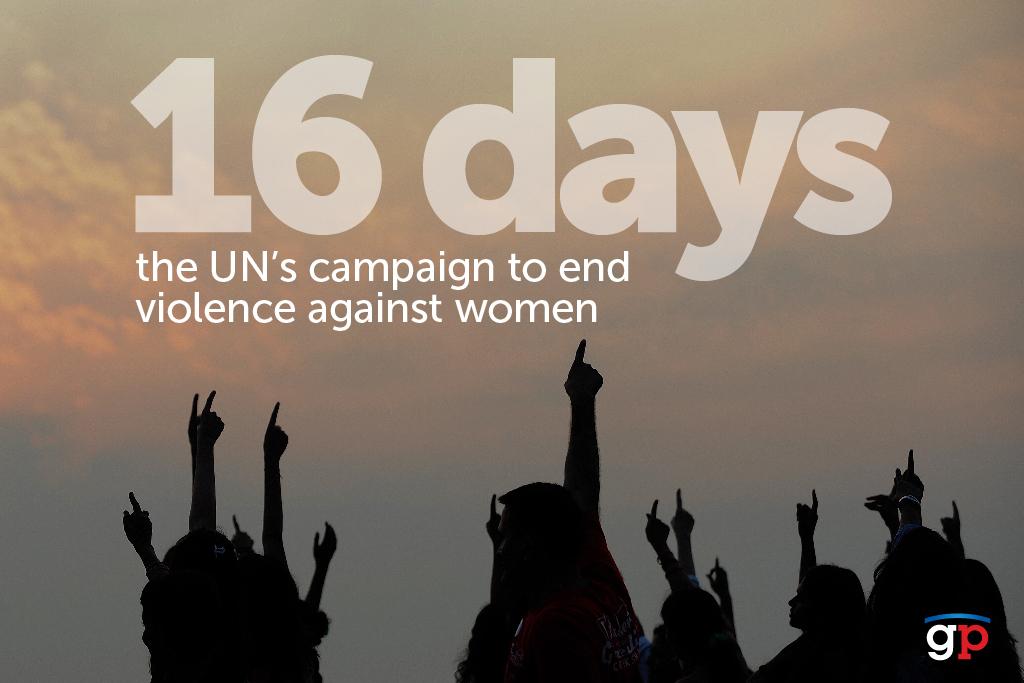US support builds for passing International Violence Against Women Act
Rights groups say the passage of a recently revived bill would boost efforts to end gender-based violence around the world, potentially inspiring similar commitments from other countries.
The International Violence Against Women Act (IVAWA) is garnering renewed support since being re-introduced to the House of Representatives last week by Congresswomen Jan Schakowsky (D-IL) and Nita Lowey (D-NY). IVAWA would make violence against women prevention and response a permanent foreign policy priority through the Office for Women’s Issues at the State Department.
Currently, the office exists only when a presidential administration wants it to exist, according to rights group Women Thrive Worldwide, and if Congress passes the bipartisan bill into law it cannot be disbanded based on presidential terms.
The last time IVAWA was introduced to Congress and the Senate, in February 2010, the bill never made it to a vote. American Jewish World Service President Ruth Messinger, in a press conference hosted by the AJWS, said the United States could lead the change in how the international community responds to violence against women if the bill were passed.
"We are, as the United States, the largest donor compared to other Western nations—Canada, Australia and Western Europe—that gives money and that makes it particularly important for us to target our aid to sensitive issues," she said. "If we say women's empowerment—action against violence against women—is important before a government can receive full funding, then countries will adopt similar policies."
Congresswoman Schakowsky added that passing the bill is not only imperative from a humanitarian standpoint; it is also important to US national security.
“It is no coincidence that the most dangerous places to be a woman are some of the most unstable places in the world," she said in Thursday afternoon's press conference. "Studies have proven that investing in women, protecting their fundamental rights strengthens entire communities. Combating violence against women is a critical step toward promoting regional and global stability.”
IVAWA, Schakowsky added, would introduce the necessary legislative “comprehensive approach to preventing and responding to violence against women.”
Right now, activists said, government funded agencies across the world are “tripping over each other.”
Wangechi Wachira, director of Kenya’s Centre for Rights and Awareness in Nairobi, who also joined Thursday’s press conference, said the bill would be beneficial for grassroots groups fighting to end violence against women.
“By passing this legislation,” she said “it will put law resources that will definitely help make a change with organizations.”
Wachira said the bill would help local organizations provide shelter, health care and protection for victims. Additionally, she said, it would be a legal resource for organizations operating in places with no present legislation to protect women or suggest equality, or in places where laws are misunderstood, unknown, or not implemented.
Ruth Messinger said many of the countries the AJWS serves do not have legislation “of any sort.”
“There are immense problems with violence against women, and no place for people who are victims of any kind of violence or oppression to bring their case forward,” Messinger said.
Despite the seemingly clear-cut reasons to support legislation to end any kind of violence, Messinger said “it’s always the case when you’re tackling a big issue that it takes a while to create momentum and actually implement a change.”
“On the one hand,” she added “this is a great time for reintroduction of the legislation, and as she [Congresswoman Schakowsky] said, she has bi-partisan support in a Congress that’s not much given for bi-partisan support, and… additional publicity that some of the tragic stories are getting in the press, particularly the year anniversary of the Indian rape case that really made the front page headlines in this country.”
“I will add,” she said “It’s not an easy Congress in which to push new issues.”
Potential congressional challenges notwithstanding, co-sponsoring Congresswoman Lowey said she is optimistic that the Act will continue to gain support because the global fight to end violence against women is “not just the right thing to do, it is in our national security interest.”
When asked how the legislation would benefit the US economically, Lowey said we are “living in a global society. We cannot live on an island. We have businesses that invest overseas, people who travel—all this is in the interest of the United States of America because whatever we do to empower women and girls in the developing world certainly empowers us here in the United States.”
The timeline for a vote on the act is still unclear.
